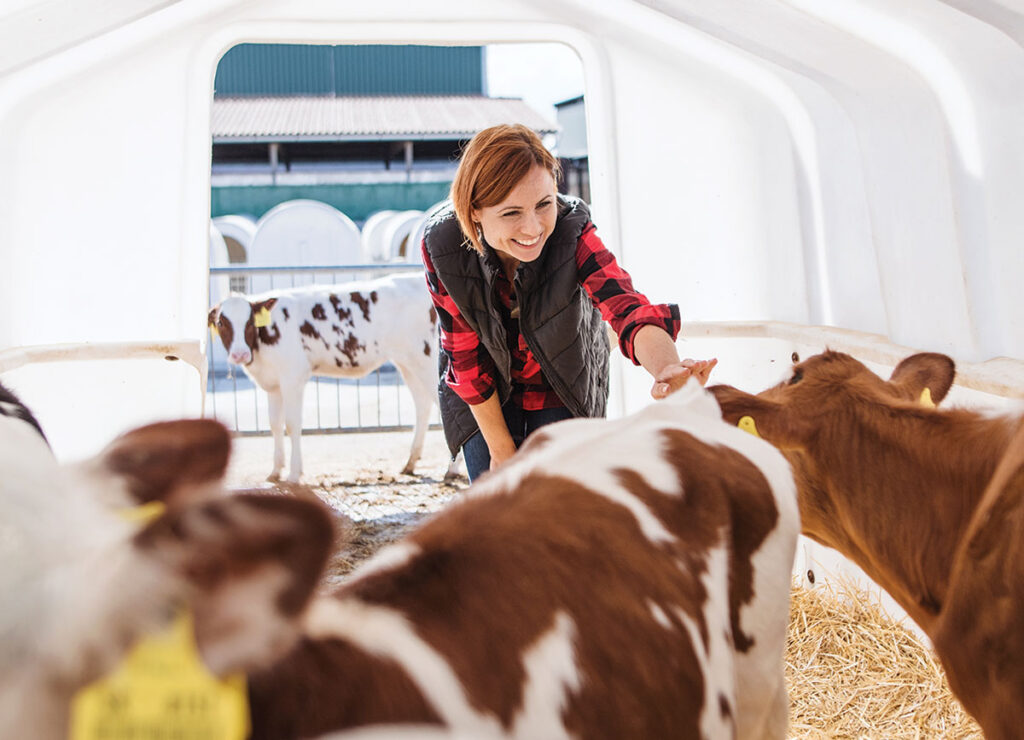
Preventing livestock-to- human disease transmission
Working with livestock can be rewarding, exhausting, frustrating and exciting all at the same time. Life as a farmer comes with many successes and challenges. One aspect of farming some producers may overlook is the possibility of getting sick from their livestock.
There are illnesses producers can contract from their animals. The transmission of diseases from livestock to humans is rare. Nonetheless, there are management practices producers should keep in mind when working with animals in order to stay healthy.
Brucellosis
Brucellosis is a bacterial infection that can spread from animals to people. Most commonly producers contract Brucellosis while they are assisting with the delivery of a calf because they are working with fluids and tissues. “Brucellosis not only can affect cattle, but it can affect sheep and goat species, swine species and our canine species,” Sarah Reinkemeyer, DVM and epidemiologist with the Missouri Department of Agriculture, explained.
Cattle producers can vaccinate calves less than 12 months of age for Brucellosis. Missouri has been a Brucellosis free state since 2004, therefore the risk of animal to human transmission is low. However, taking the proper precautions when working with animals will ensure producers stay healthy. Wearing gloves and thorough hand washing will help minimize the risk of contracting Brucellosis.
West Nile Virus
The West Nile virus can be found in horses. In equine cases, a mosquito serves as the vector of the virus. The mosquito acts as a carrier that can transmit the virus to humans as well. Horses can be vaccinated against West Nile virus. In addition, producers can take preventative measures by applying insect repellent and implementing other mosquito control measures.
Salmonellosis
This illness is contracted indirectly from livestock. Humans can pick up Salmonellosis from eggs and baby chicks that are not handled properly. “It is important to make sure the outside of the egg is thoroughly cleaned, and the egg is cooked to temperature. It is also important to wash hands thoroughly after handling baby chicks,” Reinkemeyer explained.
Cryptosporidium
Cryptosporidium is an infection that is spread by fecal oral transmission. Cryptosporidium most commonly occurs in calves and young livestock that have scours or diarrhea. In these cases, producers get feces on their hands and inadvertently consume fecal material. People who are infected with Cryptosporidium exhibit symptoms, such as vomiting and diarrhea. The best way for producers to keep from getting this illness is to wear gloves while working with livestock and wash their hands thoroughly when finished.
Zoonotic Influenza
Avian Influenza, Swine Influenza, Equine Influenza, and Canine Influenza are all illnesses that producers can catch from their animals. “Any Influenza A virus has the potential to infect humans,” Reinkemeyer stated. “Anytime people are working around animals known to have influenza, it is good to have proper PPE (personal protective equipment).” Experts recommend wearing a mask and gloves.
Rabies
The concern surrounding rabies is not regarding livestock, but in relation to bats, skunks, raccoons, and other animals. “It is something that we want to keep in mind that this is a disease that can be transmitted from animals found on many farms,” Reinkemeyer said. The wild animals carrying rabies can infect livestock and humans.
Prevention Measures
Following solid, sanitary protocols protects producers from many of these diseases. “The best prevention is to thoroughly wash your hands after handling livestock,” Reinkemeyer said. “When assisting with livestock births, always wear gloves or sleeves to prevent exposure to the reproductive tissues and fluids.”
When processing meat, make sure it is done under sanitary conditions. Any fecal material that gets into the meat could cause E.coli or Salmonella infections. During processing, wear gloves and proper PPE. Vaccination serves as a viable option as prevention for some of the diseases.
Disease transmission from livestock to humans is uncommon. But at the same time, it’s important for producers to take preventative measures to protect themselves.






